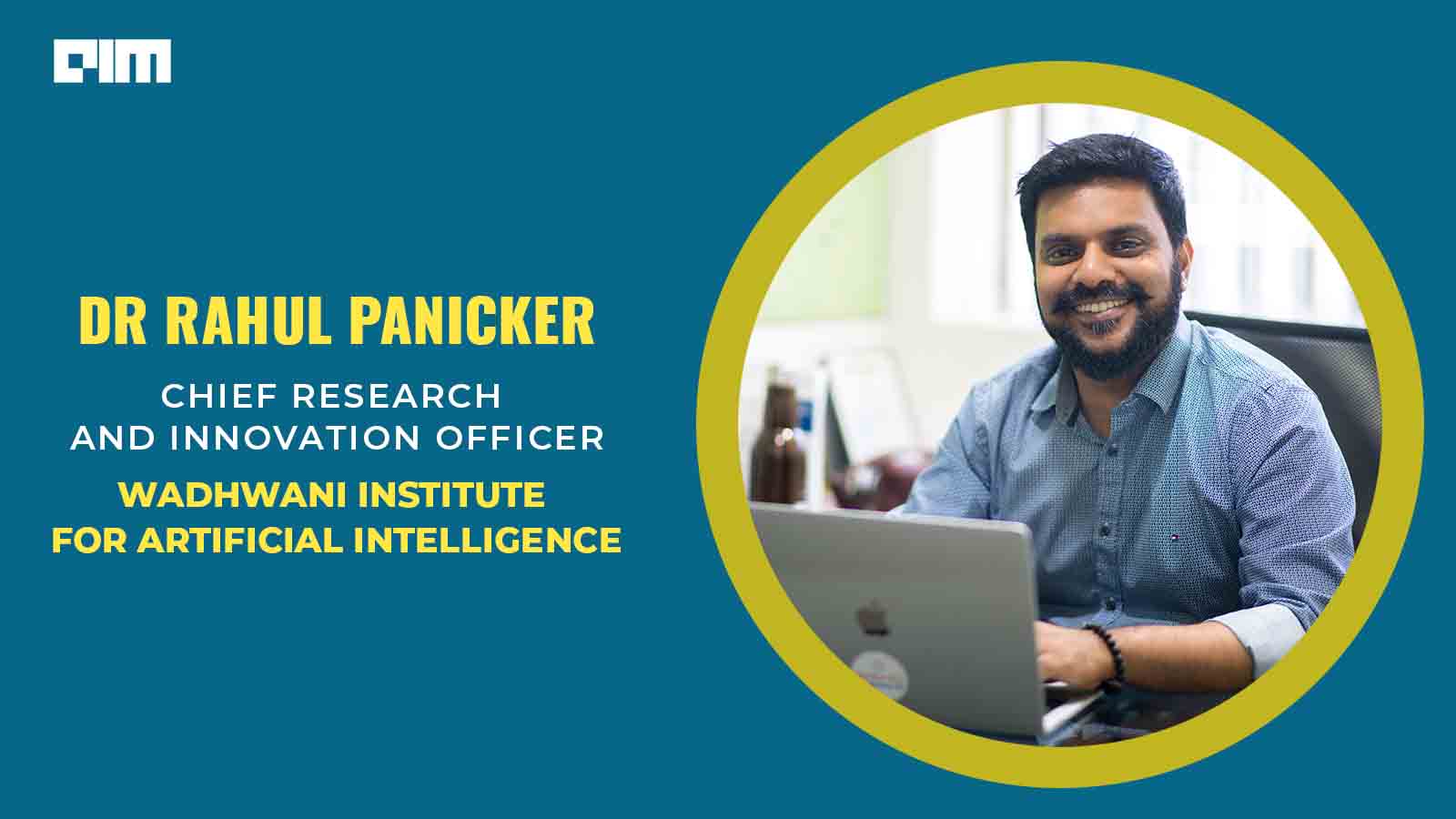Many countries are preparing to fight Stage 3 and Stage 4 of Covid-19 transmission. To combat the same, identifying high-risk populations and ensuring rapid testing of suspected cases is crucial. The current testing capacity of Covid-19 is limited, and there is a dire need to increase the test kits to meet the demand.
Having self-screening tools for the general public is one of the best ways to address this. Dr Rahul Panicker who is the Chief Research and Innovation officer at Wadhwani Institute for Artificial Intelligence, an independent, not-for-profit research institute developing AI solutions for social good, along with other collaborators are working to create one.
The project called “Cough Against Covid”, is funded by the Bill and Melinda Gates Foundation. They are working on a self-screening tool for the public that will combine an analysis of solicited cough sounds along with self-reported symptoms and contextual information such as location to identify the most probable potential Covid-19 cases and carry on wider testing.
They are creating an open dataset to collect cough samples from those who have been tested for Covid-19. The goal is to create a solution and develop algorithms for Covid-19 testing. The researchers hope that the dataset will help build the tool and will be available to researchers across the globe for free.
Analytics India Magazine interacted with Dr Panicker, who is an alumnus of the Stanford d. School to understand more about the project. He had also co-founded Embrace, a venture-backed Stanford startup that has helped over 300,000 premature babies in over 25 developing countries.
“This started off as an experiment. One where we didn’t know if it would work, but we felt was worth trying given the potential impact during this crisis around us. We are seeing early promising results, and hope that this bold experiment bears fruit,” said Dr Panicker.
Analytics India Magazine: Tell us about the initiative Cough against Covid-19. How does it bring artificial intelligence into the picture? How will it help in fighting the deadly Covid-19?
Rahul Panicker: Cough against Covid is a global data-crowdsourcing and open-innovation initiative to try and build an artificial intelligence (AI) tool that uses cough sounds, symptoms, and other contextual information to screen for possible Covid-19 infection. Such a tool requires nothing more than a phone and can be used by people at home to be triaged for testing, and can help healthcare systems save limited tests for the most likely cases.
Cough sounds carry vital information about the respiratory tract, and anecdotal evidence suggests that a Covid-19 patient’s cough sounds different from other coughs. The goal of the initiative is to collect and analyse cough sounds to try and find the early signs of Covid-19 through AI. An AI tool developed would not be a replacement for an established Covid-19 diagnostic test, but rather an “in-between” screening tool to potentially detect who is likely to have Covid-19, allowing them to get tested early and thereby support public health systems in containing the pandemic.
AIM: How are you collecting the samples? Will it be an open dataset?
RP: Our aim is to collect samples of cough sounds from people who have been tested for COVID-19, as well as those who haven’t through data collection in facilities across multiple states, We have active collaboration with the Norway India Partnership Initiative (NIPI) and a number of other partners, and also via a global crowdsourcing campaign where individuals can donate their cough on our microsite http://www.coughagainstcovid.org. All crowdsourced and, where official permissions are available, non-crowdsourced data will be made freely available to researchers across the world (after anonymisation) for open innovation.
AIM: What are the tools and the methodology that you are using?
RP: We propose a home-based triaging tool for the public that will combine an analysis of solicited cough sounds like an objective measurement along with self-reported symptoms and contextual information (coarse location to obtain local prevalence) to identify the most probable potential COVID-19 cases and to enable wider but targeted testing. The tool will require a user to record a cough sound and report the symptoms they are experiencing. The interface could be WhatsApp, a web app, a Facebook Messenger bot, or an API call from any number of third-party symptom checker apps. This can be a very valuable tool as countries grapple with limited and unevenly distributed testing capacity.
AIM: When are we likely to see a possible result of this initiative into practice?
RP: We are looking at clinical evaluation in August.
AIM: What are some of the challenges you face — be it sample collection, running the models?
RP: We have collected data in two different ways — Crowdsourcing and Facility-based data collection.
1. It is a challenge to convince people to trust us and cough for a web-based app. We also needed to verify if the participants in our efforts were diagnosed or were isolating (without a test) on the advice of medical health professionals; when they were diagnosed and at what stage of their recovery they were when they recorded the coughs.
2. We have partnered with various hospitals and testing centres across India and have requested healthcare professionals to record cough sounds while testing potential patients. All of this had to be done with none of our staff going on location.
AIM: What are the ML models being used?
RP: These are deep learning models suitable for audio classification, with suitable modifications for the particular task.
AIM: What kind of biases did you come across, and how did you tackle them?
RP: We’re actively addressing biases across aspects like gender, facility, etc., both through modifications to the dataset as well as by algorithmic means.
AIM: While institutes such as MIT are leveraging machine learning to develop vaccines, do you see India making similar efforts to make the most of technologies such as AI to fight Covid-19?
RP: Across the world, various organisations are working on solving different parts of the pandemic — detection, treatment, or prevention. Our focus at the institute has been on detection-at an individual and at the city-level. Currently, apart from our open access effort to build an AI tool with cough sounds, we are also working with city administrations to help with caseload prediction. This model helps them plan hospital bed management and resource allocation.
















































































